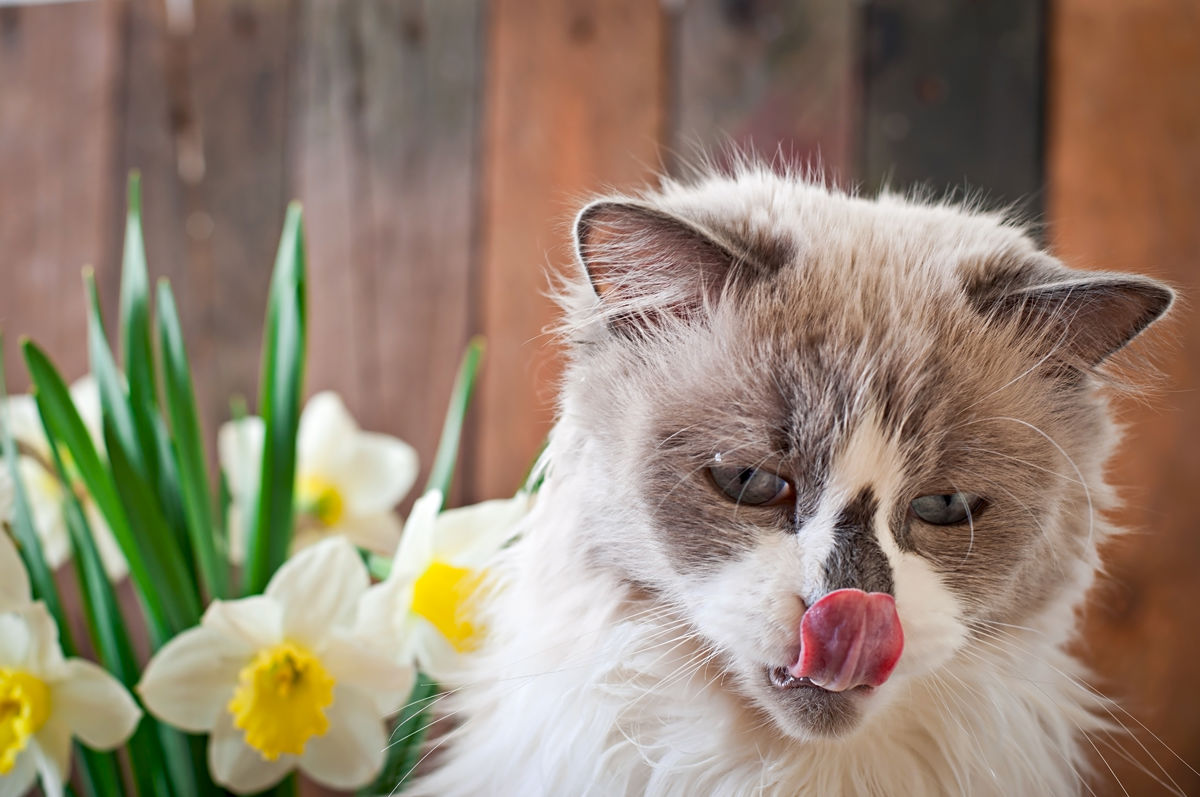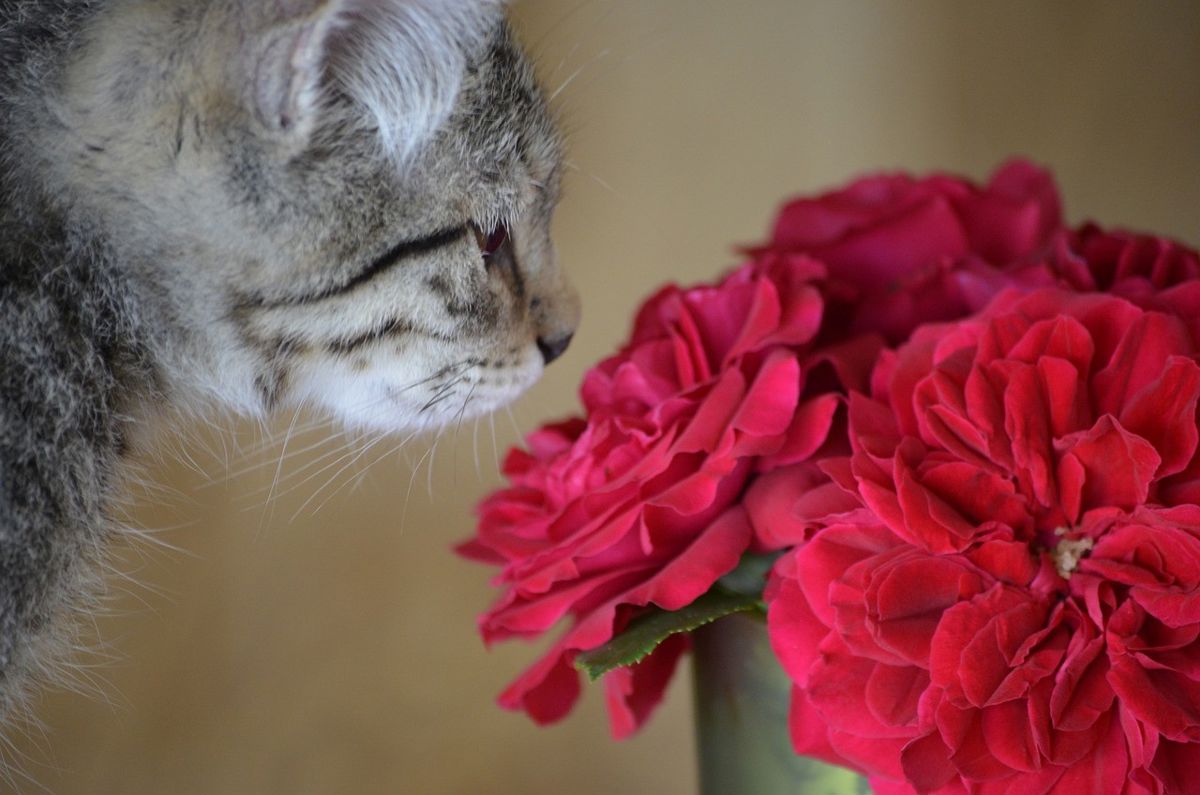Are you a cat parent who loves to burn incense? but worry that it will be too dangerous for your cat? If so, then you’re in the right place! Burning incense can be safe—even with cats around—as long as you take the necessary precautions and use the right tools. Today we’ll discuss everything from specific types of incense to ways to keep your kitty safe and sound while they share in your relaxation ritual. Read on to learn more about how to burn safely without having to waive goodbye indefinitely to one very special furry companion.
1. Can cats smell incense sticks?
We all know that dogs have an incredibly keen sense of smell, but cats are by no means inferior.“Cats use their sense of smell to help them feel more secure in their environment, detect potential predators or danger, find food, locate mates, and distinguish familiar from unfamiliar cats,” says Dr. Lindsay K. Merkel, an associate professor of small animal internal medicine at the University of Minnesota College of Veterinary Medicine.
Some people believe cats lick their noses as a method to "reboot" or clear out any dirt that may be blocking their sense of smell. Cats have a sense of smell that is 14 times stronger than humans, making them more sensitive to strong odors such as burning incense. They can detect the aromas from the incense or scented oils that we burn around them, even if it is located at a distance.
Cats have very few taste receptors on their tongues, so they rely heavily on their sense of smell to stimulate appetite. That is why cats with respiratory diseases like stuffy noses may stop eating, as they can't smell the food and therefore won't feel hungry. Burning traditional or herbal incense around cats is not a good idea, as it can lead to cat poisoning. "Monarchs" are particularly sensitive to smoke and may experience a runny nose, stuffy nose, difficulty breathing, or watery eyes if exposed.
2. Can You Light Incense Around a Cat?
The burning of incense around a cat is not recommended, the presence of smoke from the burning smell could be dangerous to your pet’s health. The smoke contains potentially harmful chemicals such as polyaromatic hydrocarbons, carbonyl, and benzenes, which are suspected carcinogens. Unlike us humans, cats' livers do not have the enzymes to metabolize these chemicals. Inhalation of this smoke can also cause irritation to the respiratory system, leading to coughing or allergies, or even asthma in some cases. In addition, secondhand smoke exposure is one of the leading causes of asthma in cats. Therefore, it is best to avoid lighting incense around cats whenever possible.
3. How to Safely Burn Incense with Cats Around?
3.1 Choose Fragrances of Natural Origin & Light Scent
It is important to choose natural incense with a light smell when burning incense around cats. Stronger scents can irritate cats’ sensitive sense of smell and could make them feel uncomfortable or even overwhelmed. Avoid incense containing synthetic fragrance oils which emit toxic fumes when burned. Natural incenses are less likely to overwhelm cats as they have a much lighter scent than synthetic fragrances. Be sure to carefully read the ingredients listed on the product label as some may contain chemicals harmful to cats. Opt for reputable brands with positive reviews, such as those made from natural herbs, spices, and essential oils which are safer and less likely to cause any harm. If possible, it is best to buy products labeled as “safe for pets” so that they won’t be exposed to any harmful chemicals while enjoying the scent in your home.
3.2 Place Incense in Proper Locations
When burning incense in the presence of cats, be sure to place it in a proper location away from your pet's reach. The smoke can spread quickly and be inhaled by both you and your feline friend. It is best to keep the incense on high shelves or in areas that are inaccessible to cats.
3.3 Do Not Burn Incense in a Closed Room
Never burn incense in a closed room or with the windows shut. Doing so can cause the smoke to build up and become more concentrated, as well as increase the chances of your cat inhaling a large amount of it. Keep the windows open when burning incense in order to help disperse any lingering odors.
3.4 Monitor Your Cat’s Reaction
Finally, make sure to monitor your cat’s reaction when near burning incense. If they seem to have an adverse reaction such as sneezing, coughing, difficulty breathing, or other respiratory symptoms then immediately discontinue use and consult with a veterinarian.
4. Some scents are often hated by cats
While different cats may prefer different smells, some scents are generally disliked by cats and should be avoided. These include strong and pungent fragrances such as:
5. Top 6 Smells That Cats Love
Cats are natural hunters and have an incredible sense of smell. Certain scents can be especially attractive to cats, including:
Catnip Valerian root has a strong musky odor that cats find appealing while silvervine is citrusy and floral in scent. Roses give off a sweet aroma that cats enjoy investigating and cantaloupe has a mild fruity smell that’s intriguing for cats to explore. Basil offers up a refreshing herbal fragrance they love sniffing and catnip provides an intense minty aroma that seems irresistible to felines. Experiment with these scents to see what your cat finds most interesting!
6. Alternatives to burning incense.
There are many alternatives to lighting incense if you would like to have a pleasant scent in your home without putting your cat at risk, consider other options such as essential oil diffusers. These devices disperse oils into the air using a fan and do not require any kind of open flame or smoke. Additionally, there are many natural alternatives to burning incense that offer the same pleasant fragrances without the risk of irritation or harm, such as potpourri, scented candles, and simmer pots. All in all, there are plenty of options available for having a fragrant atmosphere without compromising your cat's health and well-being.
Lastly, if in doubt always consult your veterinarian for advice when dealing with cats and other animals in your home. With a bit of research and precautionary measures, you can safely enjoy burning incense while keeping your pet safe from harm!
Conclusion
It is possible to burn incense around a cat but it should be done cautiously. Make sure that you are using natural, non-toxic incense made with essential oils instead of synthetic fragrances which may contain more toxins and irritants. Keep the room well ventilated when lighting your incense and try to keep the cat out of the room during this time. Monitor your cat for any signs of respiratory distress, such as coughing or sneezing. With this comprehensive guide, you can make sure that all cats in your home remain safe and healthy while enjoying the fragrant aromas that incense can provide.
Related articles
Show moreSource
1. Cat Behavior Directory
https://pets.webmd.com/cats/cats-behavior-directory
2. Association between indoor air pollution and respiratory disease in companion dogs and cats
https://onlinelibrary.wiley.com/doi/full/10.1111/jvim.15143
3. How to deter cats from gardens
https://www.thenzcatfoundation.org.nz/learn/how-to-deter-cats-from-gardens/
4. Grapefruit
https://www.aspca.org/pet-care/animal-poison-control/toxic-and-non-toxic-plants/grapefruit
5. Lindsay Merkel, DVM, DACVIM
Lindsay Merkel, DVM, DACVIM | College of Veterinary Medicine (umn.edu)








